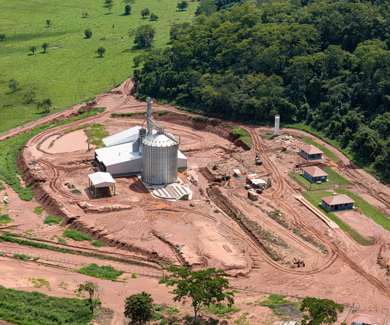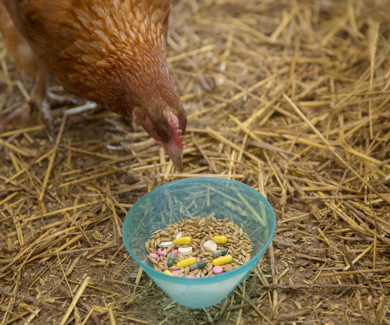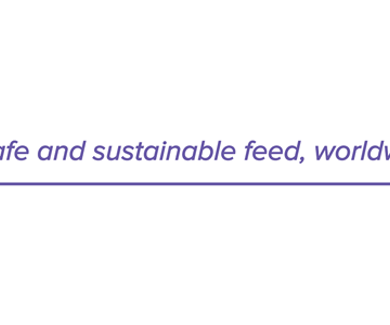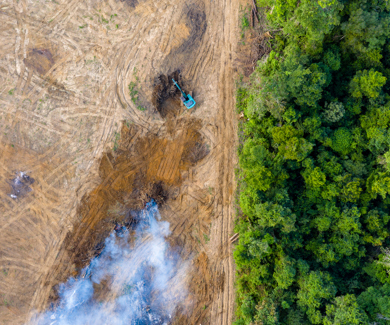Blog
Welcome to the GMP+ Blog – monthly articles from GMP+ International’s Managing Director, Martine Boon. Topics include current sector trends, future plans, and the work of the GMP+ Community.
Last update
Enabling a sustainable feed industry
Hear about GMP+ International’s latest work to create the underlying tools that will facilitate a more responsible sector, from Scheme & Customer Service Officers Hasret Celebi and Stan Hendriks.

Support for Brazil’s feed companies in a new age of regulation
Brazil’s feed industry is entering a new chapter - one where feed is safer, with more regulation and scrutiny. We ...
Published: 27 May 2025

Go antibiotic-free – the new era for feed
In the latest of our Spotlight blog series, Liliana Quillama shares how GMP+ International’s new Antibiotic-free feed standard can help ...
Published: 29 April 2025

Don’t let the politics distract you – we still need to be a sustainable industry
Shifting sands in regulation and policy do not change the underlying challenge our industry faces. If we still want to ...
Published: 25 March 2025

Spotlight: Making the new GMP+ Platform
In the first of a new series of spotlight blogs, GMP+ International’s Joris de Gooijer and Online Department’s Max van ...
Published: 27 February 2025

Feed for the future
There’s lots on the agenda for 2025. Here are some of the things you can look out for.
Published: 28 January 2025

What a year!
Our community goes from strength to strength. Hear some of this year’s highlights from the GMP+ team. Have you ever ...
Published: 18 December 2024

Collaboration answers the industry’s shared challenges
I speak with long-serving colleague Dik Wolters to understand what lessons from the past 30 years can help us tackle ...
Published: 27 November 2024

Let’s connect
One month into leading GMP+ International, and I’m already inspired, energised, and eager to get to know the GMP+ Community ...
Published: 31 October 2024

My wishes for feed’s future
As my time at GMP+ International comes to an end, I am grateful to the many people who have built ...
Published: 30 September 2024

Innovation is a team sport
We’re proud to be seen as an innovative organisation, and there are still more opportunities for our community to collaborate. Remaining ...
Published: 30 July 2024

Top 5 takeaways from our 2023 annual report
With steady growth, a new strategy, and a big thumbs up from our community, our 2023 annual report shows that ...
Published: 24 June 2024

Mutual transparency
Transparency is essential to feed safety and sustainability, not just for companies, but also for standard setters like us. Confidence ...
Published: 30 May 2024

The virtues of continuous improvement
Staying up to date and maintaining our ways of working are as important to continuous improvement as new innovations or ...
Published: 29 April 2024

Our story for our future work
Our redesigned vision, mission, and values will help us build on our success in a changed world. The world has ...
Published: 28 March 2024

A digital future for auditing
What could we achieve if we truly embraced digitisation in our community? Technology has always been a great enabler for our ...
Published: 29 February 2024

Why sustainable feed?
Our growing focus on sustainability has many parallels with our origins in feed safety. Our community recognises that sustainability is ...
Published: 30 January 2024

Turning the page to 2024
The future of our sector is not set in stone, but our community has the innovation and initiative to meet ...
Published: 20 December 2023

Our new Carbon Footprint standard
As business opportunities increasingly depend on sustainability credentials, we want to play our role as a standard setter. For the ...
Published: 27 November 2023

To go far, go together
Our partners have helped us innovate time and time again. Now, our sights are set on EU Deforestation-free Regulations (EUDR). ...
Published: 31 October 2023

“International recognition” - what our community says about us
The results are in. We asked our community to tell us what they think of GMP+ International. A few months ...
Published: 26 September 2023

Insect innovation - building a safe culture from the start
Like any developments in our sector, we want to ensure insect-based feed is managed safely and responsibly. The world is ...
Published: 31 July 2023

Countdown has begun; prepare to transition to the renewed scheme
Be prepared. All certified companies need to transition to the GMP+ FC scheme 2020 by 01 March 2025 to avoid ...
Published: 27 June 2023

‘Pragmatic’ and ‘Together’ - how we live our values
Our desire to connect with our community is more than skin-deep; it’s in our DNA. Here’s how we do it. ...
Published: 30 May 2023

Feed safety knowledge is not competitive
It should be easy to build knowledge on feed safety. That’s why the GMP+ Academy is simple, affordable, and growing. ...
Published: 28 April 2023

Supporting our smaller businesses
70% of GMP+ certified companies are small or medium-sized businesses. They play crucial roles in maintaining a safe feed chain ...
Published: 28 March 2023

Human behaviour is the key to safe feed
Feed safety is a team effort, and it takes conscious involvement from managers and leaders to build the right culture. ...
Published: 27 February 2023

You want a sustainable sector too? Let’s talk.
By combining forces, our GMP+ Community could be leaders in environmental sustainability. We want to play our part, and help ...
Published: 30 January 2023

